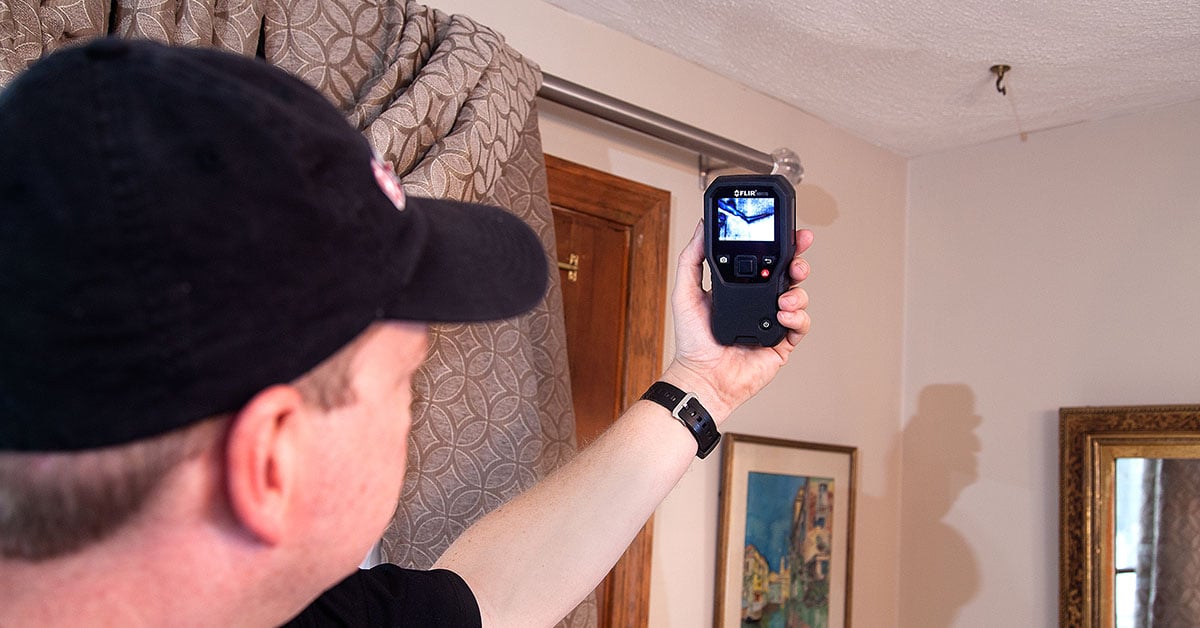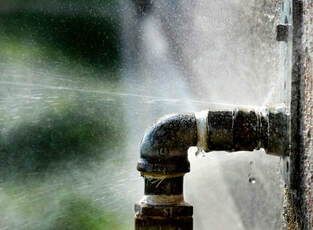This post down below pertaining to Hacks to detect leaks is incredibly engaging. You should read it.

Early detection of leaking water lines can mitigate a prospective calamity. Some small water leakages may not be noticeable.
1. Take A Look At the Water Meter
Every house has a water meter. Inspecting it is a surefire manner in which helps you uncover leakages. For starters, switch off all the water resources. Make certain nobody will certainly flush, utilize the tap, shower, run the cleaning maker or dishwashing machine. From there, most likely to the meter and watch if it will certainly change. Because no one is using it, there must be no motions. If it moves, that shows a fast-moving leakage. If you find no adjustments, wait an hour or two and check back once again. This implies you may have a slow-moving leak that could even be below ground.
2. Inspect Water Intake
Evaluate your water expenses and also track your water intake. As the one paying it, you should notice if there are any kind of disparities. If you identify sudden changes, regardless of your usage being the same, it means that you have leakages in your plumbing system. Bear in mind, your water costs need to drop under the very same array every month. An unexpected spike in your expense indicates a fast-moving leakage.
A steady rise every month, even with the exact same behaviors, reveals you have a sluggish leakage that's also gradually rising. Call a plumber to completely check your property, particularly if you feel a cozy location on your flooring with piping underneath.
3. Do a Food Coloring Test
30% comes from bathrooms when it comes to water intake. Test to see if they are running properly. Drop specks of food color in the storage tank and also wait 10 mins. There's a leakage between the container as well as bowl if the shade somehow infiltrates your dish throughout that time without flushing.
4. Asses Exterior Lines
Don't neglect to inspect your outside water lines too. Examination spigots by connecting a garden hose. Ought to water permeate out of the link, you have a loose rubber gasket. Change this and also make sure all links are tight. It will certainly assist obtain it skillfully analyzed and maintained yearly if you have actually obtained a lawn sprinkler system. One tiny leakage can squander tons of water as well as surge your water bill.
5. Evaluate the circumstance and inspect
Home owners must make it a practice to inspect under the sink counters as well as even inside cupboards for any type of bad odor or mold and mildew development. These 2 warnings show a leak so timely interest is needed. Doing routine assessments, also bi-annually, can save you from a major issue.
Much more significantly, if you know your residence is already old, maintain a watchful eye on your heating systems, pipes, pipelines etc. Check for discolorations and also weakening as the majority of pipelines as well as appliances have a life expectancy. They will additionally normally degrade because of tear as well as wear. If you believe dripping water lines in your plumbing system, don't wait for it to rise. Call an expert plumber as soon as possible so you don't wind up with an awful mess in your house.
Early detection of dripping water lines can mitigate a prospective calamity. Some tiny water leaks might not be noticeable. Checking it is a guaranteed method that assists you discover leakages. One little leakage can waste bunches of water and also increase your water bill.
If you suspect dripping water lines in your plumbing system, don't wait for it to intensify.
How to Know If Your Home Has a Hidden Leak
Water Meter Reveals Inexplicable Water Usage
If you’d like to test whether or not there’s a leak somewhere in your home, you can do this using your water meter. Here is how to conduct the test:
Don’t use any water in your home for at least 30 minutes; this also means not turning on faucets or water-using appliances.
Go outside, and check your water meter for activity.
If your water meter shows that there was activity, even though no one was using any water, this proves that there is a leak in your home.Visible Mold or Mildew Growth
Leaks behind walls create moist, dark environments that allow mold and mildew to grow and thrive. Eventually, you might see mold growth forming on the wall closest to a hidden leak.
If mold is growing in an area that receives a high amount of moisture, such as a bathroom, it may simply be an indication that better ventilation is needed. However, if you see mold growth on a wall or the ceiling in an area where you would not expect, you probably have a hidden leak.
Musty, Mildew Odor
Sometimes you might not be able to see the mold or mildew that is growing as a result of a leak. However, the smell can give the problem away just as easily. If you catch a whiff of something musty, there’s a good chance that old water is collecting somewhere in your home that you can’t see.
Stained/Warped Walls, Ceilings, or Floors
When your home soaks up water, a variety of red flags can become visible, including ceiling stains, bubbling drywall, warped walls, and sagging floors. While these issues can be caused by excess humidity, they can also be signs that a pipe or plumbing connection has started leaking behind your walls.
Inexplicably High Water Bill
After a while, you get a general sense for what your water bill should be. If you own a pool or sprinkler system, your bill will tend to be higher during summer. However, if you receive a water bill that seems especially high, and you can’t figure out what caused it, then you may have a hidden leak somewhere that’s increasing your bill.
https://www.plumbingjoint.com/blog/2019/july/how-to-know-if-your-home-has-a-hidden-leak/

We had been made aware of that editorial on Detecting hidden plumbing leaks from an associate on a different web property. Do you know about somebody who is excited about the subject? Please feel free to share it. Thank-you for going through it.